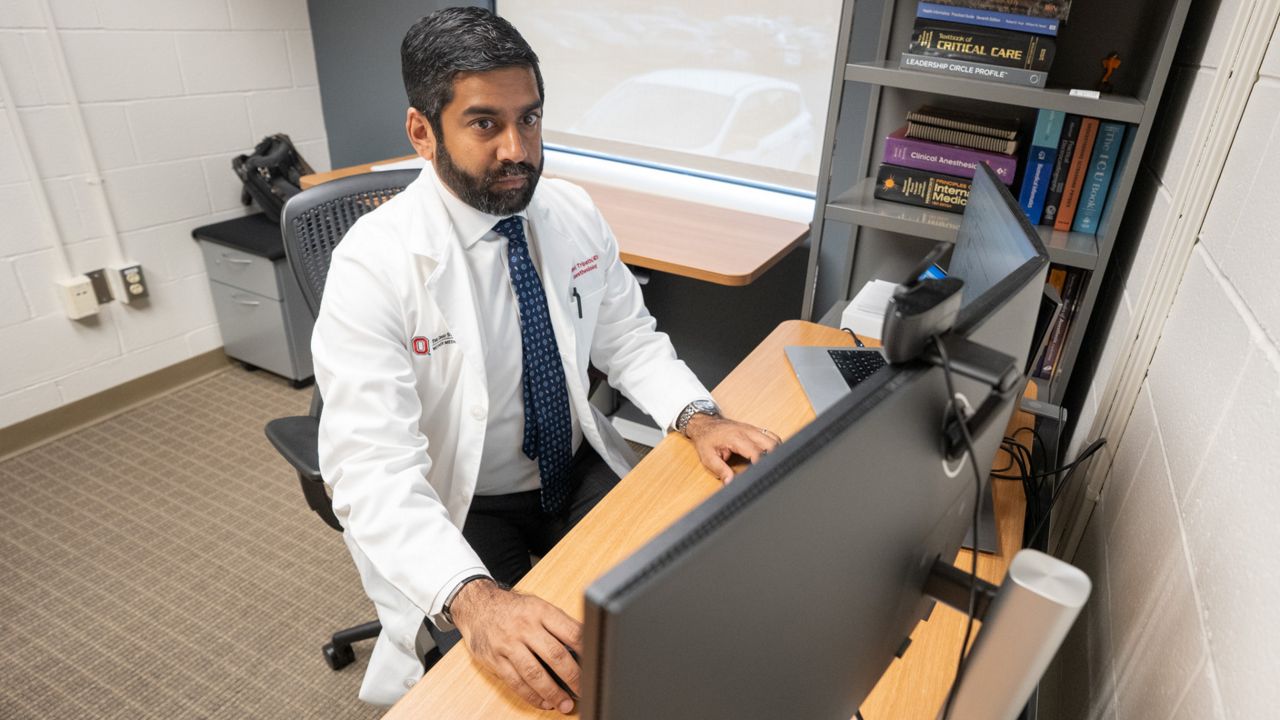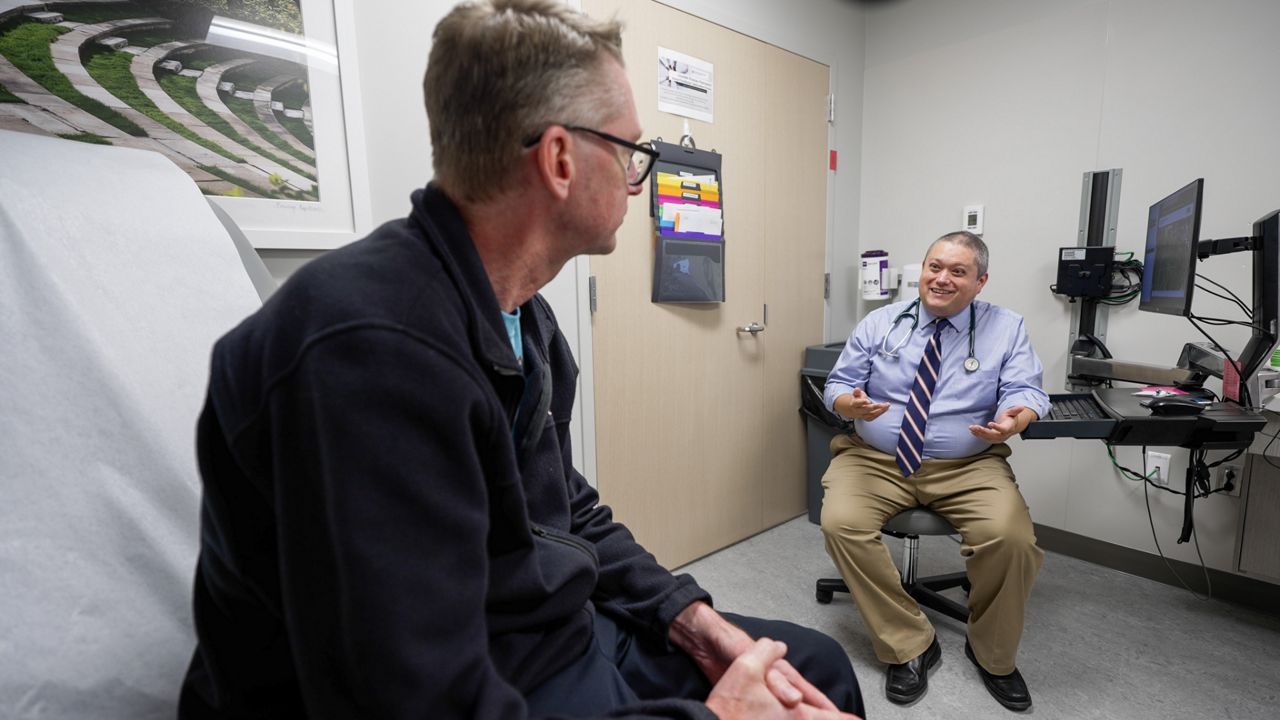COLUMBUS, Ohio — A national survey commissioned by The Ohio State University Wexner Medical Center has found that the majority of Americans are OK with the presence of AI in healthcare.
Despite AI’s existence for some time, the interest in and use of it has exploded in recent years due to advancements in the technology that have brought about services such as ChatGPT.
According to a press release from the medical center, they polled just more than 1,000 people and found:
- “75% believe using AI to minimize human errors is important
- 71% would like AI to reduce wait times
- 70% are comfortable with AI taking notes during an appointment
- 66% believe AI should improve work-life balance for health care providers”
Wexner Medical Center has begun to use AI during a pilot program for an application called Microsoft Dragon Ambient eXperience Copilot. The application securely listens to the conversation between physician and patient and provides clinical notes.
The pilot program was led by the medical center’s chief health information officer, Dr. Ravi Tripathi. The pilot program saw 24 providers/physicians use the technology during visits, with patient permission.
“We found it saved up to four minutes per visit. That’s time the physician can use to connect with the patient, do education and make sure they understand the plan going forward,” Tripathi said in the release. “A few clinicians preferred their old workflow but, overall, 80% completed the pilot. In fact, we allowed them to keep using the AI solution afterward because it had significantly impacted their practices in the eight weeks of testing.”

Internist Dr. Harrison Jackson participated in the pilot and expressed frustration regarding the typical note-taking process involved in a medical visit. He said while he knows documentation is necessary, it can take away from the interaction with the patient.
He said he apologizes to patients for looking more at the computer than them. After working with the artificial intelligence, he noted a few minor errors (wrong pronouns, mistaking words), but said they were easy to fix in a review of the notes.
“I’m spending as much, if not more time with each patient, and it’s higher quality time with more eye contact,” he said. “I often mention aspects of a physical exam out loud for the AI program to capture, and it prompts a good conversation with my patient. I’ve also let our residents use the technology under my supervision, and we’ve noticed the quality of their patient interactions and the quality of plans they present have improved.”
The medical center understands that there are still some concerns when it comes to the use of this technology. Their survey states that 56% of the respondents “still fund it a little scary” and that “70% have concerns about data privacy.”
“I know patients are concerned about the privacy and the security of their data, but we hold the artificial intelligence and this technology to the same standards that we hold our electronic medical record,” Tripathi said in the release.
The medical center says they expanded this “ambient documentation” to all outpatient providers and that—within just the first two weeks—they saved 64 hours of time across 100 providers while also improving patient satisfaction scores.



